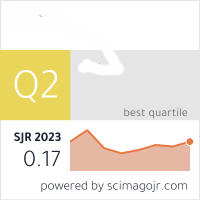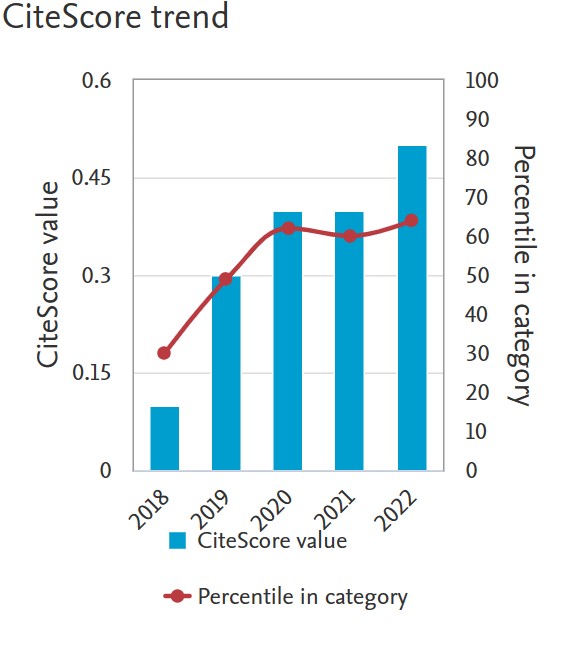Natural philosophy and principles of general pathology in the Galen system (as exemplified by the “Ars Medica” treatise). Part 1
Keywords:
history and philosophy of medicine, Galen, “Ars Medica, pathology, homoeomeriesAbstract
In his treatise "Ars Medica," Galen sets out the general principles of pathology and summarizes his views on the main challenges faced by the physician in daily practice. Continuing to develop and support the ideas of Hippocrates, who criticized the doctrine of "permanent illness," Galen argued against the followers of this doctrine, consistently upholding the principle of teleology.
Attempting to justify his viewpoint, he referred to the idea of homoeomeries as set out in his theoretical interpretation. With certain reservations, the author of this article considers the opinions of Galen on homoeomeries as a proto-scientific model of the body's microstructure. Galen's far-sighted reasoning concerning the microstructure of tissue is most clearly evidenced by his understanding of its pathological processes in the body. According to him, pathogenesis, which has several stages, can occur on the homoeomery level. In describing this process, Galen presumed that the normal state differed from pathology in how the body retained the ability to conduct its functions. In "Ars Medica," Galen summarized his findings in the form of the main criteria that distinguish a state of health from a state of disease.
This article is the first part of an ancient-Greek-language translation and medical-historical commentary of the full text of Galen's "Ars Medica" treatise. The analysis of this essay indicates that in interpreting Galen's natural-philosophical concepts and terms, the interdisciplinary nature of his approach must be considered, examining its contents in a broader general theoretical and philosophical context.
Downloads
References
Ars medica. Ed. C.G. Kühn. Claudii Galeni. Opera Om-
nia. Vol. 1. Leipzig: Knobloch, 1821. S. 224‒304 (repr.
Hildesheim: Olms, 1964. S. 305‒412) (Cod: 16,776: Med.).
Balalykin D.A., Shcheglov A.P., Shok N.P. Galen: vrach
i filosof (Galen: Physician and Philosopher) [in Russian].
M.: Vest, 2014. 416 p.
Nutton V. Ancient medicine. London; New-York: Rout-
ledger, 2013. 486 p.
Prolygina I.V. Meditsinskoe iskusstvo Galena Pergam-
skogo kak universal’nyy uchebnik po antichnoy patologii.
Intellektual’nye traditsii v proshlom i nastoyashchem (Ga-
len’s “Ars medica” as a textbook on ancient pathology.
In: Intellectual traditions of the past and present). Mos-cow, 2014. P. 87−94 [in Russian].
Galen. Meditsinskoe iskusstvo. Per. i komment. I.V. Pro-
lyginoy. V kn.: Intellektual’nye traditsii v proshlom i
nastoyashchem (Ars medica. Trans. and comments.
I.V. Prolygina). Moscow, 2014. P. 95‒129 [in Russian].
Fleming D. Galen on the motions of the blood in the heart
and lungs. Isis. 1955. Vol. 46. P. 1955. http://dx.doi.
org/10.1086/348379
Garcia-Ballester L. Galen as a clinician: his methods in
diagnosis. Aufstieg und Niedergang der romischen Welt.
II.37.2. P. 1636−1671.
Lieber E. Galen: physician as philosopher. Maimonides:
philosopher as physician. Bulletin of the History of
Medicine. 1979. Vol. 53. P. 268−285.
Galen. Sochineniya. T. 1. Pod red. D.A. Balalykina
(Works. Vol. 1. Ed. D.A. Balalykin). М.: Vest, 2014 [in
Russian].
Balalykin D.A. Preemstvennost’ vzglyadov Gippokrata i
Galena na prirodu organizma cheloveka (Continuity in
the views of Hippocrates and Galen on the nature of
the human body). Istoriya meditsiny. 2014. Vol. 1. N 4.
−184 [in Russian].
Frede M. The method of the so-called Methodical school
of medicine. In: Essays in Ancient Philosophy. Oxford
University Press, New York, 1987. P. 2−23.
Johnston I. Galen: on diseases and symptoms. Cambridge
University Press, 2006. 334 p.
Graham D.W. The postulates of Anaxagoras. Apeiron 27,
Р. 89.
Peck A.L. Anaxagoras: Predication as Problem in Physics.
Classical Quarterly. 1931. Vol.25. N 1. P. 27−37. DOI:
1017/S0009838800021431
Peck A.L. Anaxagoras: Predication as Problem in Physics.
II. Classical Quarterly. 1931. Vol.25. N 2. P. 112−120.
DOI: 10.1017/S0009838800013525
Bacon F. Novyy Organon. V kn.: Bekon F. Sochineniya
v 2 t. (New Organon. In: F. Bacon. Works in two vol-
umes). Vol.. 2. М.: Mysl’, 1972 [in Russian].
Kuhn T. Struktura nauchnykh revolyutsiy. Per. I.Z. Na-
letova (The Structure of Scientific Revolutions. Trans.
I.Z. Naletov). Moscow, 1975 [in Russian].
Popper K. Logika nauchnogo issledovaniya. Per. s
angl. Pod obshch. red. V.N. Sadovskogo (The logic of
scientific research. Trans. from English. Under the Gen.
Ed. of V.N. Sadovsky). Moscow: Respublika, 2004.
p. [in Russian]
Styopin V.S. Filosofskaya antropologiya i filosofiya
kul’tury (Philosophical anthropology and philosophy of
culture). Moscow: Akademicheskiy proekt (Academic
project); Al’ma Mater, 2015. 542 p. [in Russian].
Styopin V.S. Filosofiya i metodologiya nauki (Philosophy
and Methodology of Science). Moscow: Akademicheskiy
proekt (Academic project); Al’ma Mater, 2015. 716 p.
[in Russian].
Downloads
Published
Issue
Section
License
You are free to:
- Share — copy and redistribute the material in any medium or format for any purpose, even commercially.
- Adapt — remix, transform, and build upon the material for any purpose, even commercially.
- The licensor cannot revoke these freedoms as long as you follow the license terms.
Under the following terms:
- Attribution — You must give appropriate credit , provide a link to the license, and indicate if changes were made . You may do so in any reasonable manner, but not in any way that suggests the licensor endorses you or your use.
- No additional restrictions — You may not apply legal terms or technological measures that legally restrict others from doing anything the license permits.
Notices:
You do not have to comply with the license for elements of the material in the public domain or where your use is permitted by an applicable exception or limitation .
No warranties are given. The license may not give you all of the permissions necessary for your intended use. For example, other rights such as publicity, privacy, or moral rights may limit how you use the material.











